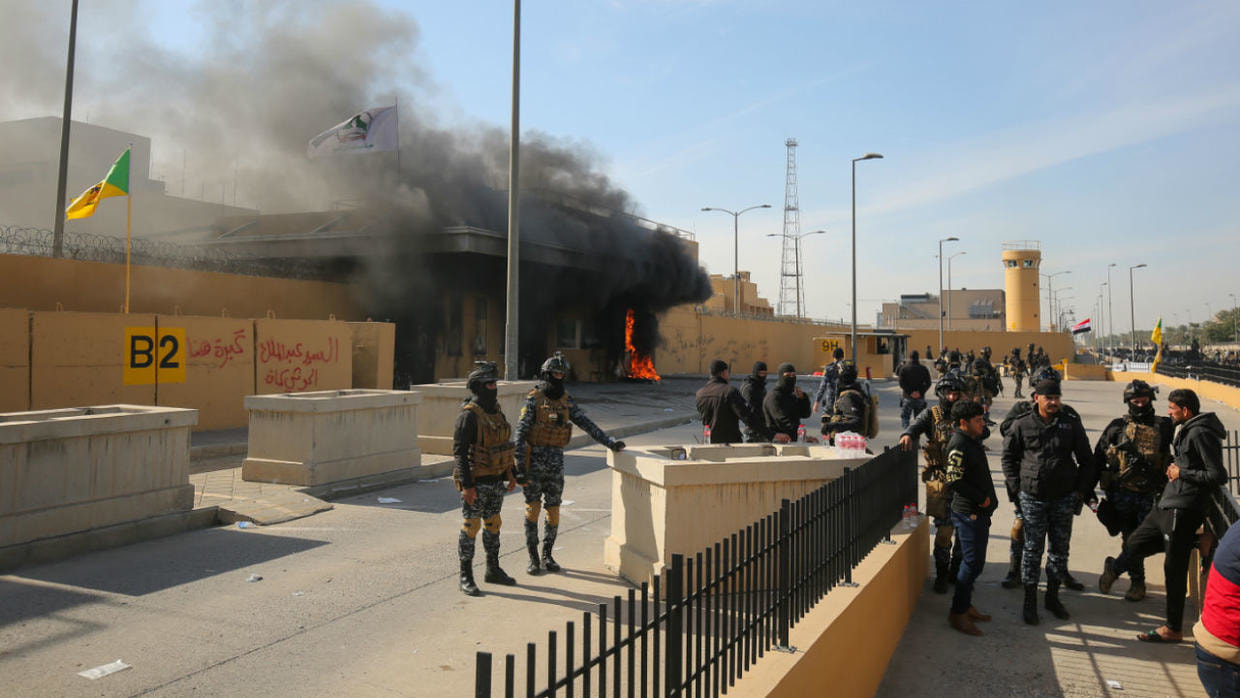The attack killed an American contractor and wounded several service members, drawing the ire of the White House, which authorized retaliatory strikes on Sunday against Kataib Hezbollah targets in Iraq and Syria, the pro-Iran Iraqi group cited by Washington as being responsible for the Kirkuk assault. The Trump administration intended to send a message not to cross the United States — unfortunately, that message was either not received or completely misread.
Not long after a funeral procession was held on Tuesday for the dozens of Shiite militants who were killed in the U.S. strikes, a large crowd of angry Kataib Hezbollah supporters as well as members of other militant groups connected to Tehran marched into the heavily fortified Green Zone in Baghdad and proceeded to storm the U.S. Embassy.
Iraqi protesters who have demonstrated against Iranian influence in their country since October have been mercilessly killed by Iraqi security forces in recent months. Yet it seems that activists loyal to establishment-backed militias can gain access to a secured area without a single shot being fired. The U.S. Embassy in Baghdad is the largest of its kind in the world and was meant to project American might and presence in the region.
Clearly, however, Iran did not get the memo. Accompanying the pro-militant activists were some of Iran’s top made men in Iraq, including U.S.-blacklisted terrorist and Kataib Hezbollah commander Abu Mahdi al-Muhandis, who had on Monday threatened his group’s response “would be very tough on the American forces in Iraq.” Also present was Qais al-Khazali, the leader of the wildly sectarian Asaib Ahl al-Haq militia, who has vowed to not let up until the U.S. presence in Iraq, diplomatic or otherwise, is removed.
But perhaps the most galling of all the attendees at the siege for U.S. officials is Faleh al-Fayyadh, the chairman of the Popular Mobilization Forces, an umbrella group that includes many clients of Iran’s Revolutionary Guard Corps. After all, it was not that long ago that the U.S. Air Force was providing close air support to the Iraqi security forces and allied militias in their fight against Islamic State militants. Fayyadh was a regular figure in security forums held in Washington, London and even Moscow, and had the ear of senior officials from the most influential global powers.
Rather than curbing Iranian influence, the United States helped facilitate Tehran’s inroads to eclipse Washington all while pouring billions of dollars into supporting a government already compromised, as the recent leaked Iran spy cables show.
What the siege showed was that the United States has no friends in Iraq, or at least none that are effective.
Source


 RSS Feed
RSS Feed